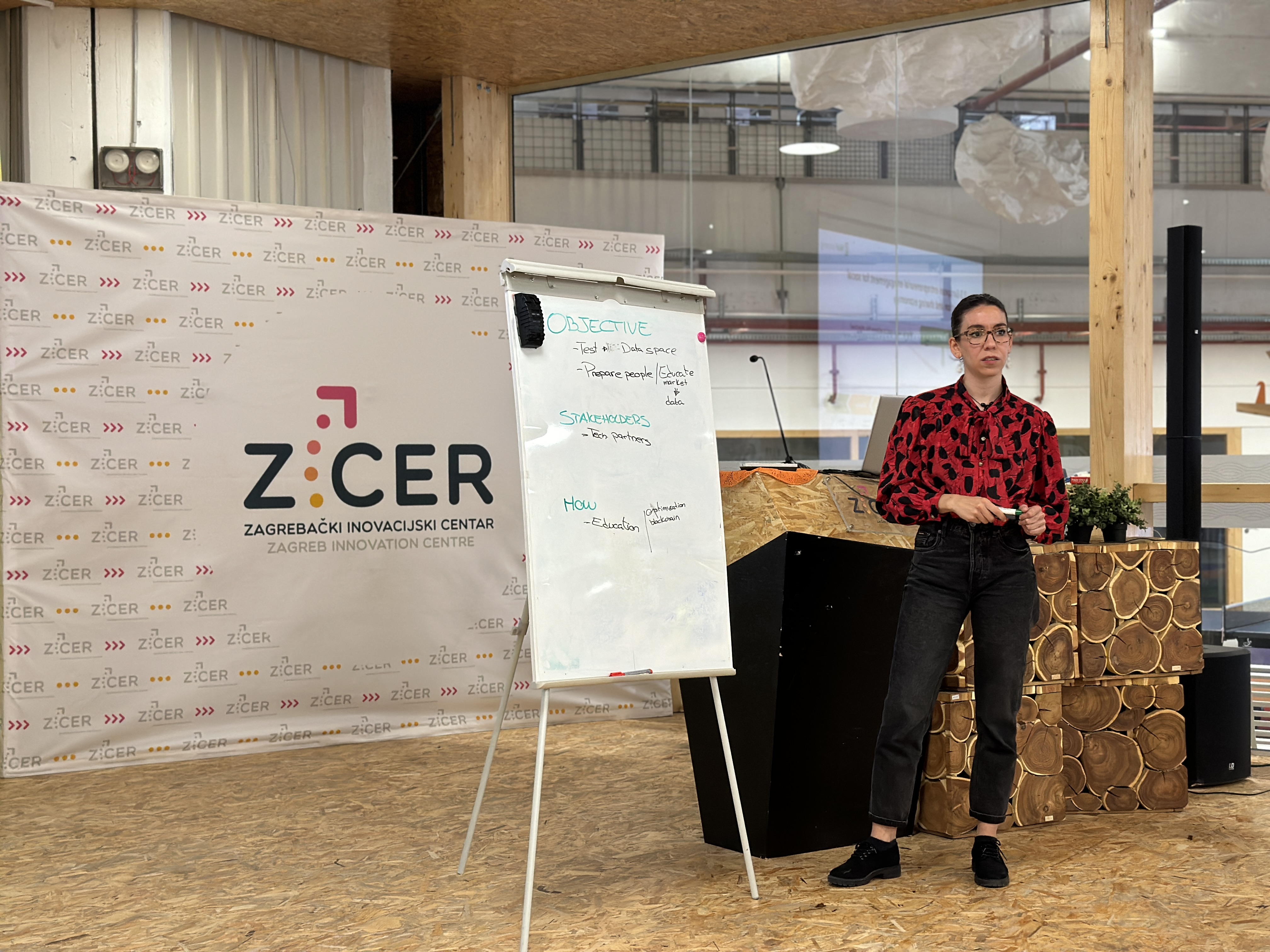The AIR Institute participates in the first Plenary Meeting of the WeForming project in Zagreb to define steps for smart city energy transformation
The AIR Institute participated in the first Plenary Meeting of the WeForming consortium, which was held in ZICER - Zagreb Innovation Centre. The two-day event brought together 30 partners from 10 countries to co-create the WeForming product, Demo development, and identify its benefits for all stakeholders involved.
This project, a pioneering in the EU, is aimed at revolutionising energy management and promoting smart city concepts.
Key Discussions and Outcomes
The meeting commenced with Dr. Konstantinos Kotsalos, our Project Coordinator from European Dynamics, providing an overview of the project's progress and its main objectives. Highlighting the importance of the current stage, he noted that all active work packages have kick-started their activities without delays. The focus now shifts to actual developments and achieving the first Minimum Viable Product (MVP) for validation in the pre-demo phase, enabling the fundamental elements towards intelligent Grid Forming Buildings (iGFB). During the meeting it has been pinpointed that WeForming considers that the intelligent Grid-Forming Buildings (iGFB) should intelligently integrate various forms of energy (electrical, thermal, mechanical, and chemical energy, etc.) in an optimal manner to achieve high levels of efficiency and even self-sufficiency while improving the satisfaction of building users in terms of comfort and observability/controllability, and paying special attention to their interaction with other buildings and with the energy ecosystem (networks and markets) in which these buildings are immersed not as followers, not as supporters, but as formers within an interoperable ecosystem.
Partners engaged in productive discussions on refining objectives, making them more tangible, and exploring strategies to enable sustainable cities through a holistic approach. This approach aims to benefit all stakeholders in the energy ecosystem, ensuring that progress is both inclusive and impactful.

Advancements in Demo Sites
Significant advancements were highlighted across various demo sites:
- Luxembourg: Progress on the grid-forming multi-port power hub, despite some issues with the power processing hub being resolved through a containerised solution.
- Portugal: Deployment of an energy analytics platform to identify flexibility points, interoperability to the grid, and various business use cases aimed at reducing peak power and costs.
- Croatia: Technological propositions for metering infrastructure and data aggregation to benefit Intelligent Grid-Forming Buildings (iGFBs).
- Belgium: Planning and objectives for smart metering data, heat pumps, and photovoltaic systems, focusing on mid and long-term storage solutions.
- Spain: Detailed Gantt charts for assets like EV chargers and batteries, and innovative business use cases despite regulatory challenges.
- Germany: Steps and information flow for demo Business Use Cases (BUCs), overcoming challenges in finding suppliers for bidirectional charging stations and stationary batteries.
Looking ahead
Day two of the meeting emphasized defining effective business models for iGFBs, discussing single-use and multi-use scenarios. The importance of these models lies in their ability to transform buildings from passive consumers into active participants in shaping future energy networks.
Dr. George Mourkousis from HSE highlighted the need for iterative procedures in developing business models, regulatory, technical, and social barriers, and ensuring user requirements and technical specifications align with project goals. Discussions raised on the future connectivity of the Middleware with the different technological enablers.
F6S engaged partners in discussing the communication and dissemination strategy, emphasizing the importance of engaging all stakeholders by providing them with the tools to create Energy Efficiency Communities and the roadmap to achieve this.
The meeting concluded with a focus on maintaining momentum and ensuring all tasks are aligned with the overall objectives of WeForming.
About WeForming
WeForming is at the forefront of transforming energy management in buildings, focusing on seamless integration with the energy ecosystem. Through groundbreaking solutions, this EU project addresses digital operation, management, and maintenance, along with efficient and interactive energy processing for Intelligent Grid-Forming Buildings (iGFBs). The WeForming project (full name: Buildings as Efficient Interoperable Formers of Clean Energy Ecosystems) is an innovation action funded by the European Union through the Horizon Europe Programme under the Grant Agreement No. 101123556 that started in October 2023 and will last for 36 months.
Partners: European Dynamics, Luxembourg Institute of Science and Technology, Regulatory Assistance Project, F6S Innovation, Hardware and Software Engineering, Holistic, Iko Real Estate, Sudstroum, Circu Li-ion, GenCell, Builtrix, MOVIDA, R&D Nester, Grid One, Smart Island Krk, University Of Zagreb - Faculty of Electrical Engineering and Computing, Wingest, Flexide Energy, University of Liège, Cuerva, Schneider Electric España, Aggregering, Vergy Community, AIR Institute, University of Málaga, Karlsruhe Institute of Technology (KIT), FZI Research Center for Information Technology, Stadtwerke Karlsruhe, BES - Badische Energie-Servicegesellschaft, Qbots Energy